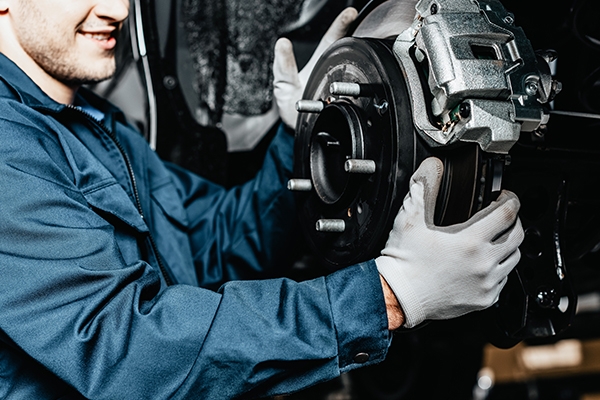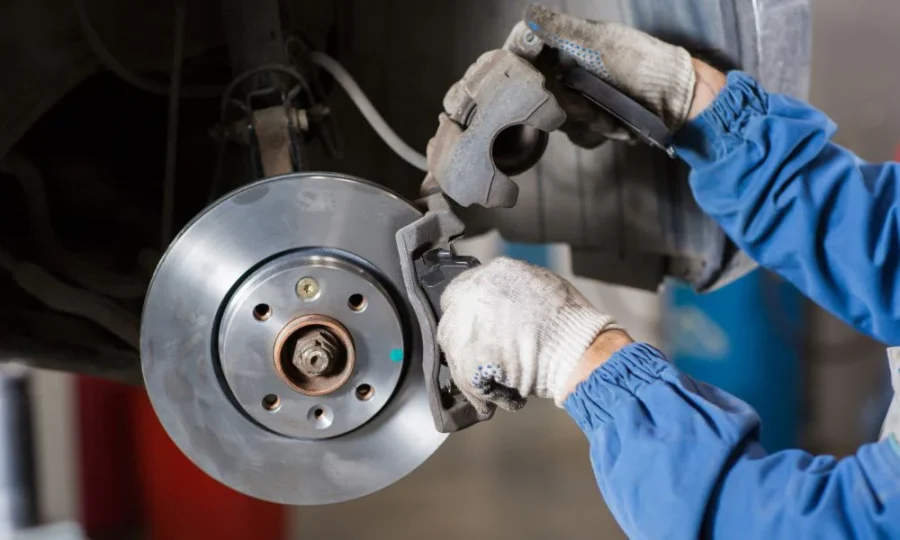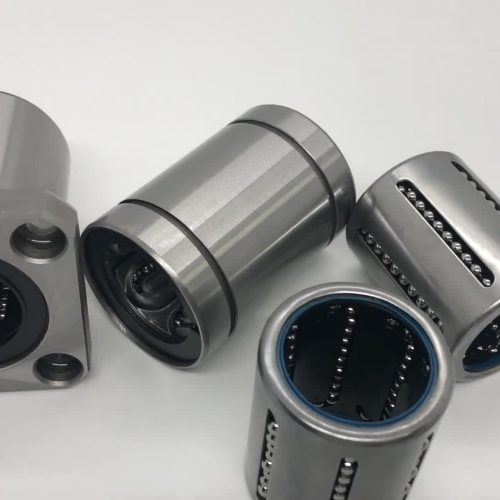Key Takeaways:
- Industrial brakes enhance safety measures by providing controlled stopping power, emergency stopping capabilities, and preventing accidents due to equipment malfunction.
- Industrial brakes optimize production efficiency by offering precise control over machinery movement, improving productivity, and reducing downtime.
- Industrial brakes help reduce wear and tear on machinery components, prolonging equipment lifespan and reducing the need for frequent repairs.
- Types of industrial brakes include electromagnetic brakes for precise control, hydraulic brakes for heavy-duty applications, and pneumatic brakes for quick and responsive stopping.
- Key factors to consider when choosing industrial brakes are load and weight capacity, environmental conditions, and maintenance requirements.
- Best practices for mastering industrial brakes include regular inspection and preventive maintenance, proper lubrication techniques, and staff training and safety protocols.
Industrial brakes play a crucial role in various industries, from manufacturing to mining. They are essential for ensuring the safety of workers, optimizing production efficiency, and reducing wear and tear on machinery. Understanding the importance of industrial brakes and knowing how to choose the right type for specific applications is key to achieving smooth and efficient operations. In this comprehensive guide, we will delve deep into the world of industrial brakes, exploring their importance, different types, factors to consider when choosing, and best practices for mastering their operation.
1. Understanding the Importance of Industrial Brakes
Industrial brakes are not just another component in the machinery; they are a critical safety feature that helps prevent accidents and injuries in the workplace. By applying controlled friction or hydraulics, industrial brakes can bring moving machinery to a safe stop. Let’s explore the importance of industrial brakes in more detail.
Enhancing Safety Measures
The foremost importance of industrial brakes lies in their ability to enhance safety measures in the workplace. Without properly functioning brakes, machinery can pose a significant threat to human life. Industrial brakes provide a means to control the movement and speed of heavy equipment, ensuring the safety of operators and workers in the vicinity.
Furthermore, industrial brakes offer emergency stopping capabilities, allowing for quick and efficient response in potentially dangerous situations. They help prevent accidents that may occur due to equipment malfunction, power outage, or operator error.
Optimizing Production Efficiency
In addition to promoting safety, industrial brakes play a vital role in optimizing production efficiency. By providing precise control over the movement of machinery, brakes enable operators to perform tasks with accuracy and finesse. This level of control allows for improved productivity and reduced downtime.
For example, in manufacturing processes where precision is paramount, such as CNC machining or assembly lines, electromagnetic brakes are commonly used. These brakes offer quick and accurate stopping, allowing for efficient production and minimal waste.
Reducing Wear and Tear
Industrial machinery is subjected to constant use and heavy loads, leading to wear and tear over time. However, with the proper application of industrial brakes, the wear and tear can be minimized.
When machinery is brought to a stop using brakes instead of abruptly stopping, the impact on the system is reduced, resulting in less stress on the components. This helps prolong the lifespan of the equipment and reduces the need for frequent repairs and replacements, ultimately saving both time and money.
2. Different Types of Industrial Brakes and their Applications
Industrial brakes come in various types, each designed to suit specific applications and requirements. Let’s explore the different types of industrial brakes and their applications.
Electromagnetic Brakes for Precise Control
Electromagnetic brakes are widely used in industries where precise control over the movement of machinery is essential. These brakes rely on the principle of electromagnetism to generate the necessary stopping force.
One common application of electromagnetic brakes is in elevator systems. These brakes ensure smooth and accurate leveling of the elevator car, allowing for safe entry and exit of passengers. They are also found in robotics, machine tools, and printing presses, where precise stopping and positioning are critical.
Hydraulic Brakes for Heavy-Duty Applications
Hydraulic brakes are specifically designed for heavy-duty applications that require immense stopping power. These brakes use hydraulic pressure to actuate the braking mechanism, making them ideal for industries such as mining, construction, and oil and gas.
In mining, for example, hydraulic brakes are used in large haul trucks to bring the massive equipment to a halt efficiently. The powerful stopping force offered by hydraulic brakes ensures the safety of operators and prevents accidents in challenging terrains or steep slopes.
Pneumatic Brakes for Quick and Responsive Stopping
Pneumatic brakes utilize compressed air to generate the necessary stopping force. They are renowned for their quick response and reliable performance, making them suitable for applications that require rapid stopping, such as conveyor systems and material handling equipment.
In the logistics industry, pneumatic brakes are commonly used in conveyor systems to ensure the smooth flow of packages and materials. These brakes allow for precise control and can be easily integrated into automated systems, contributing to efficient and streamlined operations.

3. Factors to Consider When Choosing Industrial Brakes
Choosing the right type of industrial brake for a specific application requires careful consideration of several factors. Let’s explore the key factors that should be taken into account when selecting industrial brakes.
Load and Weight Capacity
The load and weight capacity of the machinery are crucial factors to consider when choosing industrial brakes. Different brakes have different stopping capacities, and selecting a brake that cannot handle the weight of the equipment can lead to safety hazards and mechanical failures.
It is essential to have a clear understanding of the maximum load that the brake needs to handle and select a brake system that can meet or exceed that requirement. Consultation with brake manufacturers or experts can provide valuable insights and ensure the correct brake selection.
Environmental Conditions
The environmental conditions in which the machinery operates can significantly impact the performance and durability of industrial brakes. Factors such as temperature, humidity, dust, and corrosive substances should be taken into consideration.
For example, in industries with high temperatures, such as steel manufacturing or foundries, brakes with heat-resistant materials are essential to ensure optimal performance even in extreme heat. Similarly, in environments with high levels of dust or corrosive substances, brakes with protective coatings or seals may be necessary.
Maintenance and Service Requirements
Industrial brakes, like any other component, require regular maintenance and servicing to ensure their proper functioning and longevity. When choosing a brake system, it is important to consider the maintenance and service requirements associated with it.
Some brake systems may require frequent inspections, lubrication, or part replacements, while others may offer more extended service intervals. Evaluating the maintenance and service requirements can help plan for the necessary resources, such as spare parts and skilled technicians, to keep the brakes in optimal condition.
4. Best Practices for Mastering Industrial Brakes
Mastering the operation and maintenance of industrial brakes is crucial for achieving optimal performance and ensuring workplace safety. Here are some best practices to consider:
Regular Inspection and Preventive Maintenance
Regular inspection and preventive maintenance are key to identifying and addressing potential issues before they escalate into major problems. Implement a routine inspection schedule to check for any signs of wear, damage, or malfunction in the brake system.
Additionally, follow the manufacturer’s recommended maintenance procedures, such as lubrication, adjustment, and replacement of worn-out parts. This will not only extend the lifespan of the brakes but also contribute to smoother and more reliable operations.
Proper Lubrication Techniques
Proper lubrication is essential for the smooth operation of industrial brakes. Using the correct lubricants and following the recommended procedures ensures optimal performance and prevents premature wear.
Before applying any lubricant, thoroughly clean the brake components to remove any dirt or debris that can compromise the lubricating properties. Refer to the manufacturer’s guidelines for the appropriate lubricant type, quantity, and application method.
Staff Training and Safety Protocols
Investing in staff training and implementing proper safety protocols is crucial for preventing accidents and promoting a culture of safety in the workplace. Train operators and maintenance personnel on the proper operation and maintenance of industrial brakes.
Ensure that they are aware of the potential risks associated with brake malfunction and the necessary steps to take in case of an emergency. Encourage open communication and reporting of any brake-related concerns to address them promptly and prevent accidents.
In conclusion, mastering industrial brakes is essential for achieving smooth and efficient operations in various industries. By understanding their importance, exploring the different types and their applications, considering key factors in brake selection, and following best practices for operation and maintenance, businesses can enhance safety measures, optimize production efficiency, and improve the lifespan of their machinery. Incorporate these insights into your operations, and reap the benefits of mastering industrial brakes.





